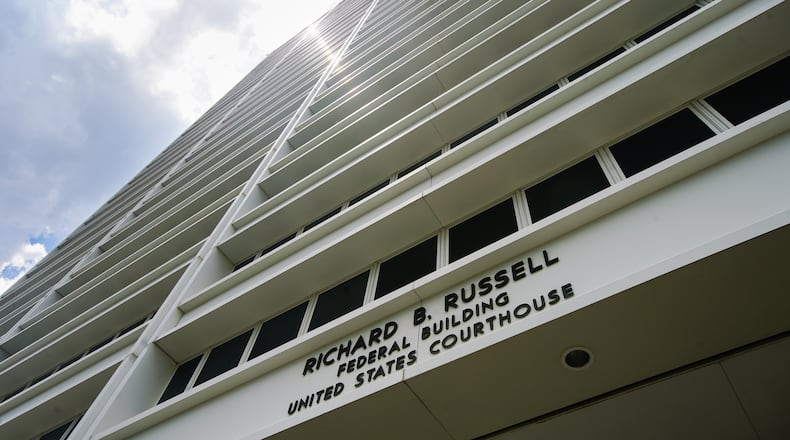A federal judge tried to get information out of the attorney representing the Trump administration Thursday, asking several detailed questions about the decision-making process that has left the immigration status of more than 100 international students in limbo.
More than 130 plaintiffs, including 27 in Georgia, are current students and recent alumni who filed a joint lawsuit after their records were abruptly terminated from the federal Student and Exchange Visitor Information System. They are among the more than 1,000 people nationwide who have had their SEVIS abruptly revoked.
During a Thursday hearing in Atlanta, U.S. District Court Judge Victoria Calvert said she would make a ruling before a temporary restraining order she granted late last week expires. That decision, expected next week, could determine whether the internationals are permitted to stay in the U.S. or will be at risk of deportation.
So far, the federal government has not answered why those individuals were selected, who terminated their records or what warranted the terminations.
“Can you provide any more information on what actually happened here?” Calvert asked Assistant U.S. Attorney R. David Powell.
“At this point we don’t have that information,” said Powell, who is representing the federal government in the case.
Charles Kuck, an Atlanta immigration attorney, suggested in court that the government never looked at individual cases. If it had, he said, his clients would not have been selected because they haven’t done anything that would make them deportable. They suspect the terminations were done en masse, perhaps using artificial intelligence to flag any international student who has had any interactions with the legal system, including traffic citations.
“Do you have anything to refute what the plaintiffs speculate happened?” Calvert asked Powell.
“At this point, your honor, I don’t have the facts,” Powell responded.
Calvert also asked where the terminations took place. And while Powell said he “thinks it’s a centralized operation out of D.C.,” he added that he didn’t have that information.
Kuck is asking the court to grant a preliminary injunction which would permanently reinstate his client’s legal immigration status. Powell argued that such an injunction would prevent the executive from being able to control immigration policy.
The government does have the power to control immigration, responded Kuck, “as long as they follow the rules that they themselves have set.” He said the abrupt terminations didn’t follow the law and violated his client’s rights to due process.
Powell questioned that the plaintiffs suffered “irreparable harm” which would merit the injunction. But he asked that if Calvert were to grant an injunction, that she narrow it only to the Georgia students. The other plaintiffs, affiliated with universities across the country, should have their cases transferred to their respective jurisdictions, he said.
“So your bottom line is everything that happened here was fine?” asked Calvert.
“Everything that happened was the agency properly applying,” its policies, Powell said.
Calvert also posed questions to Kuck, asking him to respond to the government’s argument that most of the plaintiffs should be moved to different venues, and that some of the plaintiffs should have their cases handled individually rather than as part of the large joint lawsuit.
Calvert did not offer any indication on which direction she is leaning or if she will have the non-Georgians move to a different venue. She ended the hearing saying that she would issue her order before the temporary restraining order expires on May 1.
About the Author
Keep Reading
The Latest
Featured
